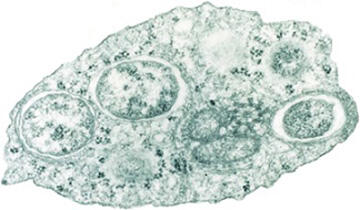
The Liverpool School of Tropical Medicine (LSTM) together with colleagues at the Department of Chemistry (University of Liverpool (UoL)) and Japanese pharmaceutical company Eisai are pleased to announce that they have been award a Global Health Innovative Technology (GHIT) Fund to develop new drugs to target lymphatic filariasis and onchocerciasis. The GHIT Fund facilitates and funds global partnerships for the discovery and development of new health technologies, including drugs, vaccines and diagnostics, for infectious and neglected tropical diseases prevalent in developing countries.
Researchers will aim to identify and develop new drug candidates that efficiently kill the intracellular bacteriaWolbachia living inside the parasitic worms responsible for both lymphatic filariasis (elephantiasis) and onchocerciasis (river blindness) - debilitating infections affecting more than 150 million people globally.
LSTM, through the A·WOL Consortium has already shown that a 4-6 week course of the antibiotic doxycycline can deplete Wolbachia from the parasitic worms, leading to worm sterility and slow worm death, thereby breaking the parasitic life-cycle and limiting adverse host immune response. This unique anti-Wolbachia treatment has already been adopted by international health programmes as it has many benefits, including potential for deployment in regions co-endemic with Loa loa and the ability to reduced treatment timeframes compared to standard anti-filarial drugs. However, the use of doxycycline remains limited due to it unsuitability for use in pregnant women and children. To combat these issues, the A·WOL Consortium is developing new drugs and discovering new drug candidates that can be used in all populations and with reduced treatment times as short as 7 days. This success was achieved by screening over 60,000 compounds to test their ability to kill Wolbachia. With the GHIT award, the most promising drug candidates will proceed through advanced rounds of chemical modification and testing to identify lead candidate compounds that have a good safety and efficacy profiles ready to move into pre-clinical testing.
With tropical disease expertise led by Prof Steve Ward and Prof Mark Taylor based at LSTM, chemical optimisation of analogues will be performed at Eisai in collaboration with Prof Paul O’Neill’s laboratory at the Department of Chemistry, UoL. This unique partnership brings together internationally recognised drug discovery expertise focusing on a novel approach to address the current challenges of two parasitic diseases that affect the lives of many millions of people globally.